[My comment: As
I was saying: Engle talks about Europe's rise of the far right. We
played this game before didn't we? It put Europe in ruins though the
good guys won. Still, would you want to repeat it? The radical right
wing nationalists are dangerous. They have
NO moral compunction for the value of other groups' rights ... just
their own white ones. The right is a DANGEROUS thing do NOT be tempted
by their nationalist rhetoric. Make no mistake about it they are
violent, love guns and will not hesitate one inch to use them against
this time another "other" and who knows maybe the same as WWII Europe!
GOTV for Democrats across the nation!]
ISTANBUL — It's been a rough year.
ISIS erupted across the world, making even al Qaeda look tame. Syria got so bad that millions decided to leave and walk to Europe. Libya collapsed. The war in Afghanistan got longer. Terrorists rampaged in Paris, twice.
There were bright moments too, but they were harder to pick out amid the darkness. The United States and Cuba agreed to let bygones be. The European Union held together despite deadbeat Greece, which as S.J. Perelman wrote, invented democracy but never got paid for it. In Paris, much of the world agreed to get greener and cleaner, but will they stick to it?
So what's next?
Here are a few guesses about what may be in
store for international news in 2016. It's not all bad, but much of it
is, particularly in the Middle East, which seems unable to pull itself
out of its swamp of religious and ethnic divisions.
1. Rise of the far right in Europe
In 2015 the migrants and refugees
flooded into Europe and are still traveling there. It was a shock.
Germany opened its doors. But Europe's doors are closing. In 2016 this
profound change will to settle in. There may be anger and resistance to
the demographic changes and more xenophobia, which of course helps ISIS;
and it may not be just happening in Europe.
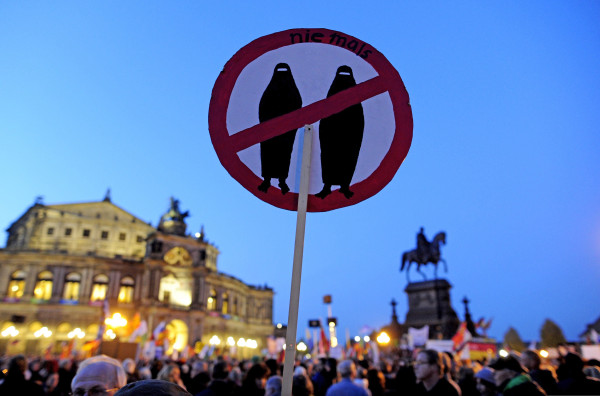
Supporters
of "Patriotic Europeans Against the Islamization of the West" (PEGIDA)
gather at a protest in Dresden, Germany, on Oct. 12. ROBERT MICHAEL / AFP - Getty Images
2. More consensus against ISIS
Russia, the U.S., Iran, Europe, and pretty much every one on the planet everyone agrees ISIS
is a universal threat, yet there is no united approach to fight the
group although coordination is clearly needed. The year ahead may be
when nations realize they can actually degrade and defeat ISIS if they
work together.
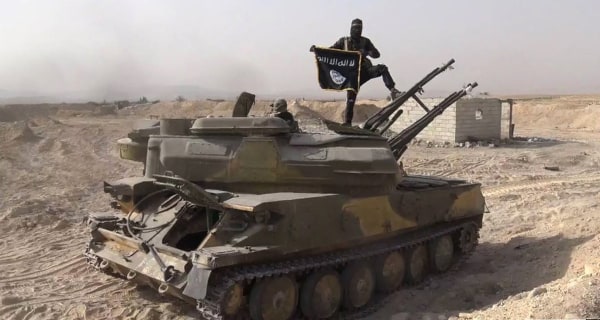
An ISIS militant holds the group's flag as he stands on a captured Syrian tank in an image posted on Facebook on August 5. Militant website via AP
3. More domestic terrorism
I hope it doesn't happen, but the husband and wife team of Muslim fanatics in San Bernardino
proved how easy it was to get high-powered guns in the United States
and attract a lot of attention for a cause. It's hard to stop this kind
of violence. Copycats might try again, especially in an election year.
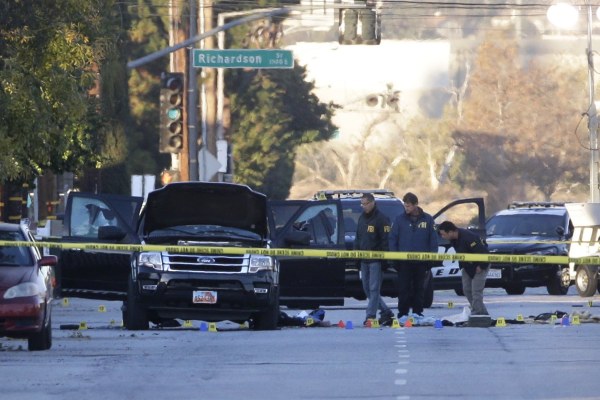
Authorities
investigate the scene of a police shootout with Syed Rizwan Farook and
Tashfeen Malik on Dec. 3 in San Bernardino, California. Jae C. Hong / AP
4. More U.S. involvement in Iraq and Syria
U.S. involvement in Iraq and Syria has been
steadily ramping up. U.S. policy shifted from advisers in Iraq, to
airstrikes in Syria to American special forces in Syria. It seems the
U.S. is an event away from a big increase.
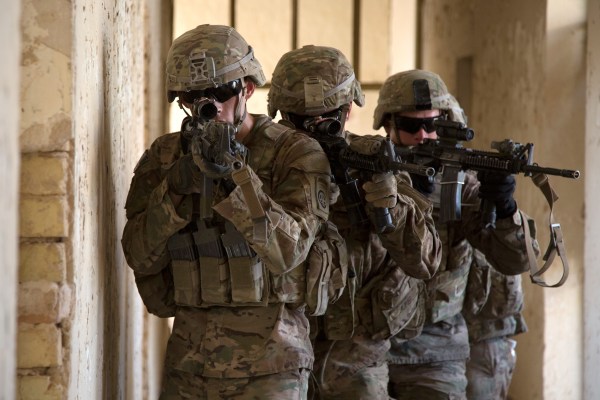
U.S. Army paratroopers maneuver through a hallway as part of squad level training at Camp Taji, Iraq on Aug. 3, 2015. Spc. Paris Maxey / U.S. Department of Defense
5. Chaos in Middle East keeps rumbling
The region isn't out of it its mire of yet.
Sunnis, Shiites, Kurds, Turks, Arabs, Persians still see more
differences than commonalities. Next year may be the culmination of this
mess before new leaders emerge offering other ways forward.
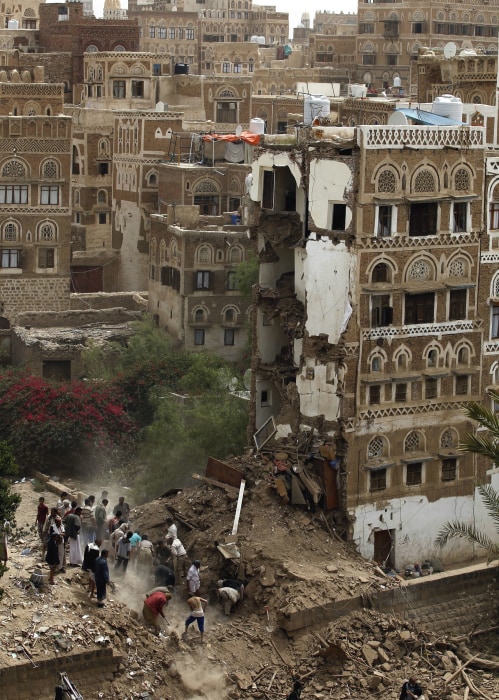
Yemenis
search for survivors under the rubble of old buildings allegedly
destroyed by an airstrike carried out by the Saudi-led coalition in
Sanaa on June 12. YAHYA ARHAB / EPA, FILE
6. Big changes could be coming to Iran
The Iran nuclear deal
comes into effect in 2016. Money should start pouring into Tehran.
There are elections in 2016 as well. Will the money help the reformers
who signed the deal, or the hardliners who want the cash but no change?
The answer could shape Iran's future.
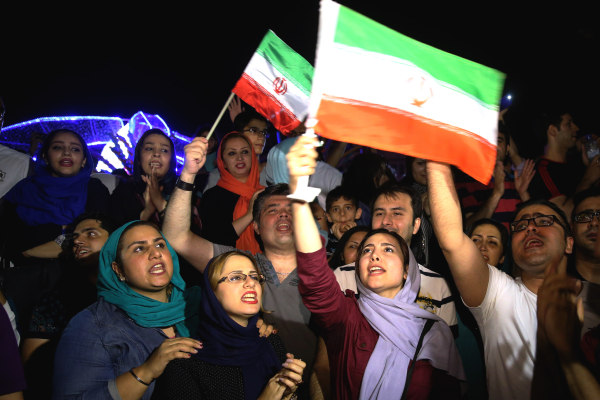
Iranians sing and wave Iranian flags during celebrations following a landmark nuclear deal in Tehran on July 14, 2015. Ebrahim Noroozi / AP, file
7. A hard year for Russia
If oil prices stay low,
which analysts predict, Russia may be in for a long 2016 — and could
react with more military moves. Russia diverted a lot of attention away
from domestic woes by taking Crimea, going to war in Syria, and punishing Turkey — so far just economically — for shooting down a Russian jet. Will there be a new Russian crisis in 2016?
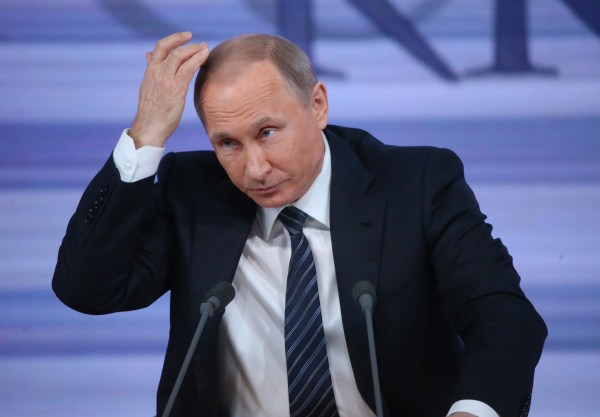
Russian President Vladimir Putin speaks during his annual press conference on Dec. 17. Sasha Mordovets / Getty Images Contributor, file
8. China gets serious about the environment; India does not
China has had its first code red day, when
people were told it was actually a threat to their lives to breathe. No
regime can survive if its people don't have the freedom to breathe, a
human right so basic no one thought to include it on the Bill of Rights.
China seems to have woken up and is investing big in solar, realizing
clean energy can be profitable. India, however, seems to believe it
needs to do what China did: pollute more now to pull its masses from
poverty.
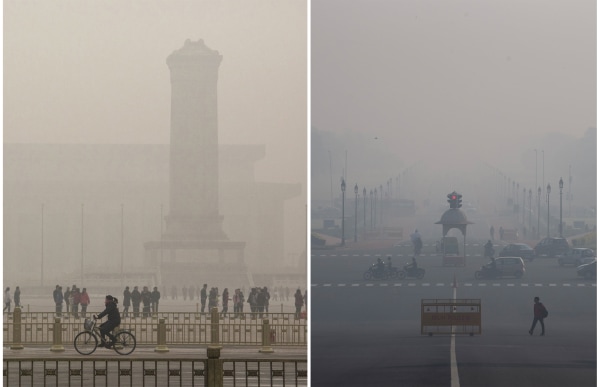
Both
Beijing and New Delhi face serious air pollution problems. Above left,
Beijing on Nov. 30, 2015, and New Delhi on Nov. 24, 2015. Getty; AP
9. Warming Latin American relations
First Cuba, Venezuela next? Political changes are underway in Venezuela
that could see the end of the failed system put in place by the late
Hugo Chavez. Could it mean better relations with Washington across the
region, a new page?
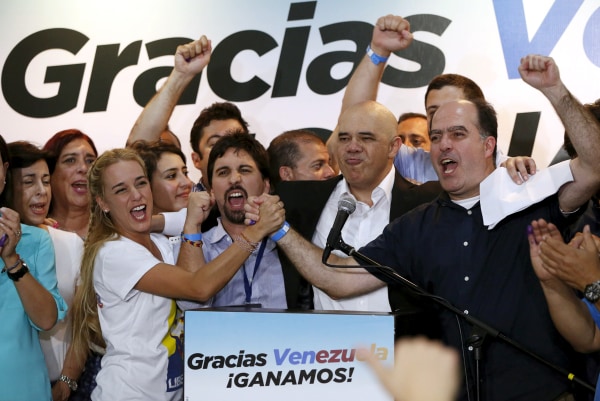
Lilian
Tintori, center left, wife of jailed Venezuelan opposition leader
Leopoldo Lopez, celebrates next to candidates of the Venezuelan
coalition of opposition parties in Caracas on Dec. 7. Venezuela's
opposition won control of the National Assembly by a landslide,
trouncing the ruling party and altering the balance of power after
almost 17 years of socialist rule. CARLOS GARCIA RAWLINS / Reuters, file
10. Turkey takes center stage
Turkey is the main pathway for ISIS fighters
flowing in Syria and refugees flooding out. Turkey controls, or has the
potential to control, both of those vital taps. Turkey was prominent in
2015; it could be pivotal in 2016.
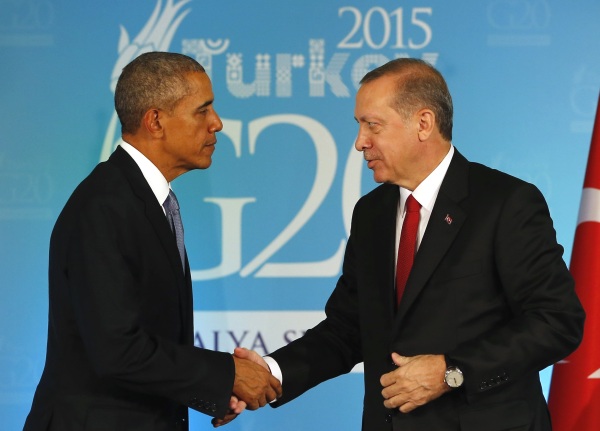
President
Barack Obama and Turkish counterpart Recep Tayyip Erdogan attend a
press conference after their meeting within the G20 Summit on Nov. 15. Anadolu Agency / Getty Images Contributor, file
